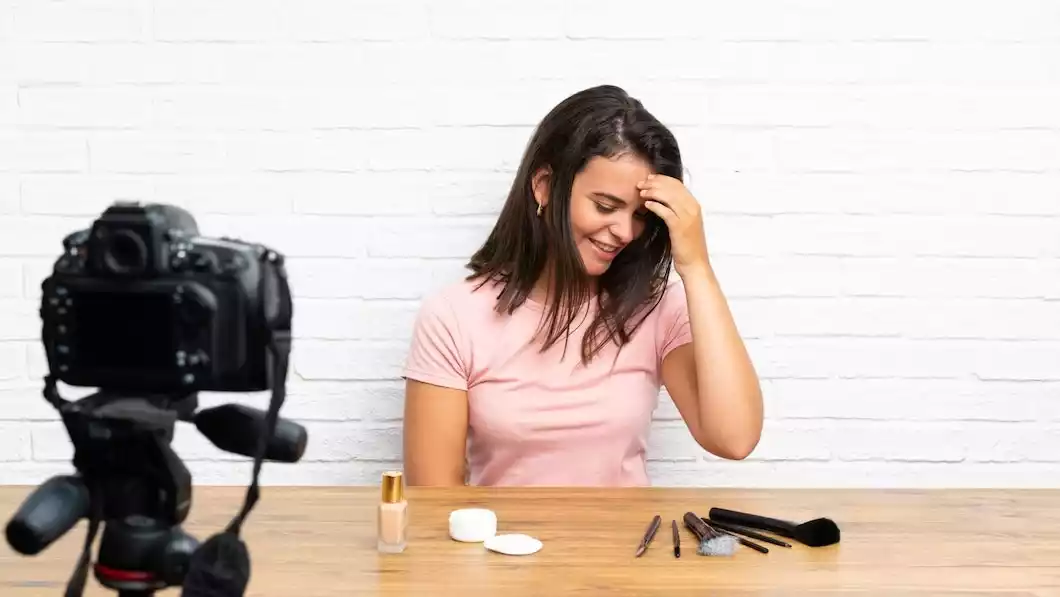1. Fyre Festival
Fyre Festival was marketed as a luxurious music festival featuring high-end accommodations and gourmet dining on a private island. Influencers like Kendall Jenner and Bella Hadid shared enticing images on social media, creating a sense of exclusivity and allure. When attendees arrived, they found inadequate shelters, substandard food, and no musical performances, leading to chaos and disappointment. The festival's failure resulted in lawsuits, criminal charges against the organizers, and significant reputational damage for the influencers involved. This case serves as a reminder to brands to thoroughly vet their partnerships and ensure that claims made by influencers are legitimate.
2. Pepsi's Kendall Jenner Ad
In a 2017 advertisement, Kendall Jenner was shown leaving a modelling shoot to join a protest, handing a police officer a can of Pepsi to diffuse tension. The ad was meant to convey a message of unity and peace. The commercial faced immediate backlash for trivializing serious social movements and protests against police brutality, with critics labelling it as tone-deaf. Pepsi pulled the ad and issued an apology, highlighting the need for brands to approach sensitive social issues with authenticity and understanding, rather than merely using them for marketing purposes.
3. Diet Prada and Fashion Nova
Fashion Nova, a fast-fashion brand, faced scrutiny from Diet Prada for allegedly copying designs from independent designers without giving them credit. Various influencers, including major fashion figures, promoted Fashion Nova, leading to calls for accountability. The controversy raised ethical questions about the influencer marketing industry and the responsibility of influencers to support ethical brands. This example underscores the importance of aligning with brands that share similar values and ethical practices.
4. Tata Tea Fruski Campaign With Biswa Kalyan Rath
In their collaboration with comedian Biswa Kalyan Rath for the #FruskiLeak, Tata Tea missed the mark by not leveraging the comedian's trademark humor. The resultant content felt scripted and inauthentic, failing to resonate with the audience despite decent reach.
5. Reliance's Jio Launch
The planned high-profile launch fell short when multiple celebrities tweeted an identical message due to a copy-paste error. This gaffe demonstrated the lack of authenticity in the campaign and underlined the importance of individualized, genuine content from influencers.
Find Perfect Influencer For Your Brand
Don’t let your brand fall victim to influencer marketing fails! We connect you with influencers who genuinely align with your brand values, ensuring authentic and impactful partnerships. Ready to elevate your marketing strategy? Contact us today and let’s find the perfect influencers for your brand!
![button_talk-to-us-now.png]()
6. Lindsay Lohan and her Failing Fashion Line
Lindsay Lohan launched a fashion line called "Lohan," but it was criticized for its lack of substance and authenticity. Many questioned Lohan’s involvement and expertise in the fashion industry, which detracted from the brand's credibility. The line ultimately failed to gain traction in a competitive market, leading to a tarnished reputation for Lohan and a missed opportunity for the brand. This situation illustrates the risks associated with influencers whose credibility and expertise do not align with the products they endorse.
7. Snapchat's Influencer Misfire
Snapchat engaged various influencers to promote new app features, expecting them to generate buzz and excitement. However, many influencers did not genuinely engage with the platform or use its features, resulting in a lack of enthusiasm. The campaign did not achieve the desired engagement, leading to wasted marketing efforts and budget. This example highlights the importance of selecting influencers who genuinely align with the brand and use its products.
8. Kim Kardashian’s QuickTrim
Kim Kardashian promoted QuickTrim, a weight-loss supplement, suggesting it was a key part of her fitness regimen. The endorsement drew criticism for promoting unrealistic body standards and the idea that quick fixes could lead to weight loss. The backlash resulted in questions about the product's safety and effectiveness, damaging Kardashian's credibility. This situation emphasizes the need for influencers to promote products responsibly and consider the impact of their endorsements on audience health and well-being.
9. Google Pixel Mistake by Anushka Sharma
The endorsement backfired when Bollywood actress Anushka Sharma, supposed to promote Google Pixel's camera quality, posted from an iPhone instead. This oversight raised questions about the authenticity of the endorsement and damaged the campaign's credibility.
10. Daniel Wellington’s Overuse of Influencers
Daniel Wellington initially found success by collaborating with numerous influencers to promote its watches. However, as the brand saturated social media with sponsored posts, audiences grew fatigued with the content. The overexposure led to diminished engagement rates, with audiences becoming desensitized to the brand. This example highlights the importance of strategic planning in influencer marketing and the need for variety to maintain audience interest.
![birthday occasion]() Birthday Gifts
Birthday Gifts
![anniversary occasion]() Anniversary Gifts
Anniversary Gifts
![women]() Women
Women
![men]() Men
Men
![Couples]() Couples
Couples
![Couples]() Wedding Gifts
Wedding Gifts

 Birthday Gifts
Birthday Gifts
 Women
Women
 Men
Men
 Anniversary Gifts
Anniversary Gifts
 Wedding Gifts
Wedding Gifts
 In an age where social media influencers can sway public opinion and drive brand success, what happens when
In an age where social media influencers can sway public opinion and drive brand success, what happens when 
 We now support international payments
We now support international payments
